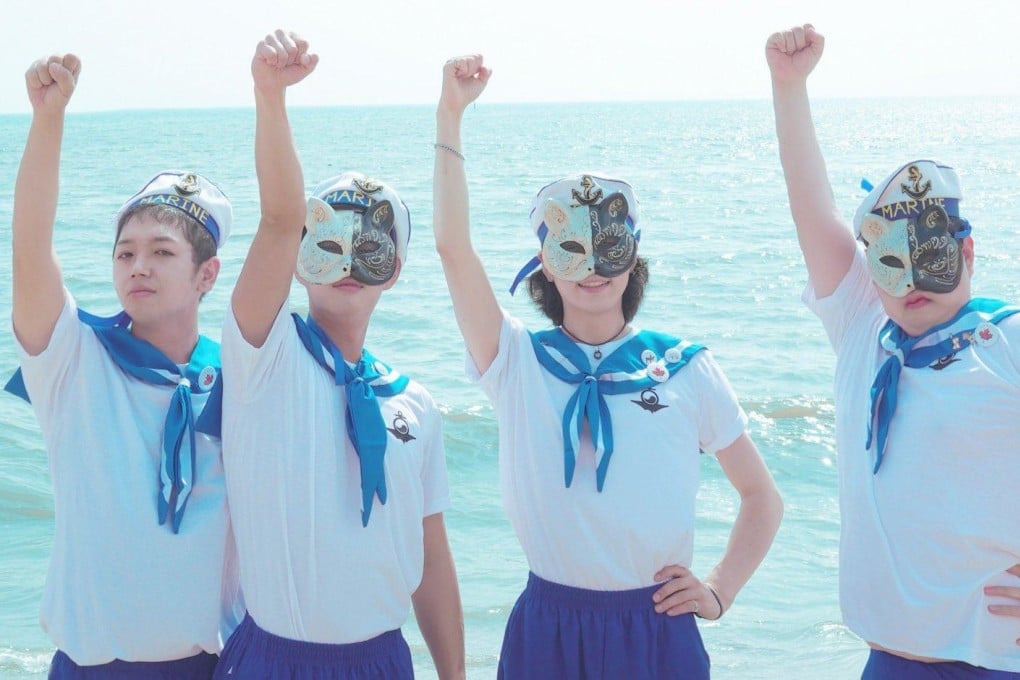Who are Lionesses? Queer K-pop boy band who want to be the LGBTQ+ icons they wish they’d had growing up
- The first openly LGBTQ+ boy band in K-pop say they want to inspire those who face negativity over their sexuality and gender identities
- The four members also talk about their masks, how they chose their name, being a queer boy band in South Korea, and trying not to be political

When Lionesses released their first song, Show Me Your Pride, in November 2021, they made history as the first openly LGBTQ+ boy band in K-pop history. Seven months and a handful of songs later, they have spent June 2022 – Pride Month – performing at various events in South Korea, including at the US and Canadian embassies.
“I think it was the busiest June I’ve ever experienced in my life,” rapper Foxman says. “We had a lot of live performance schedules and we gathered often to do rehearsals for those performances. The fact that our Pride Month has been so busy really makes me feel pride.”
Named after a group of female lions and with a fandom accordingly named “Den”, Lionesses are a pop-opera hybrid group, also known as a “popera” group, that consists of Foxman, Damjun, Kanghan and Malrang. All are queer singers and three of them perform masked, the exception being leader and frequent songwriter Damjun, who formed the group and who has not worn a mask since their first single.
Aside from Kanghan, who also performs as a drag queen under the name Rooya, all the members use the gender pronoun “he” when needed, though Korean isn’t as reliant on gendered pronouns as English is. Kanghan says whatever English pronoun people use for them is fine, but “in Korea, people usually call me unnie”, a term a female uses for an older sister.
While still a new act, they hope to become the LGBTQ+ icons they didn’t have when they were growing up and to inspire others who face negativity and confusion over their sexuality and gender identities.